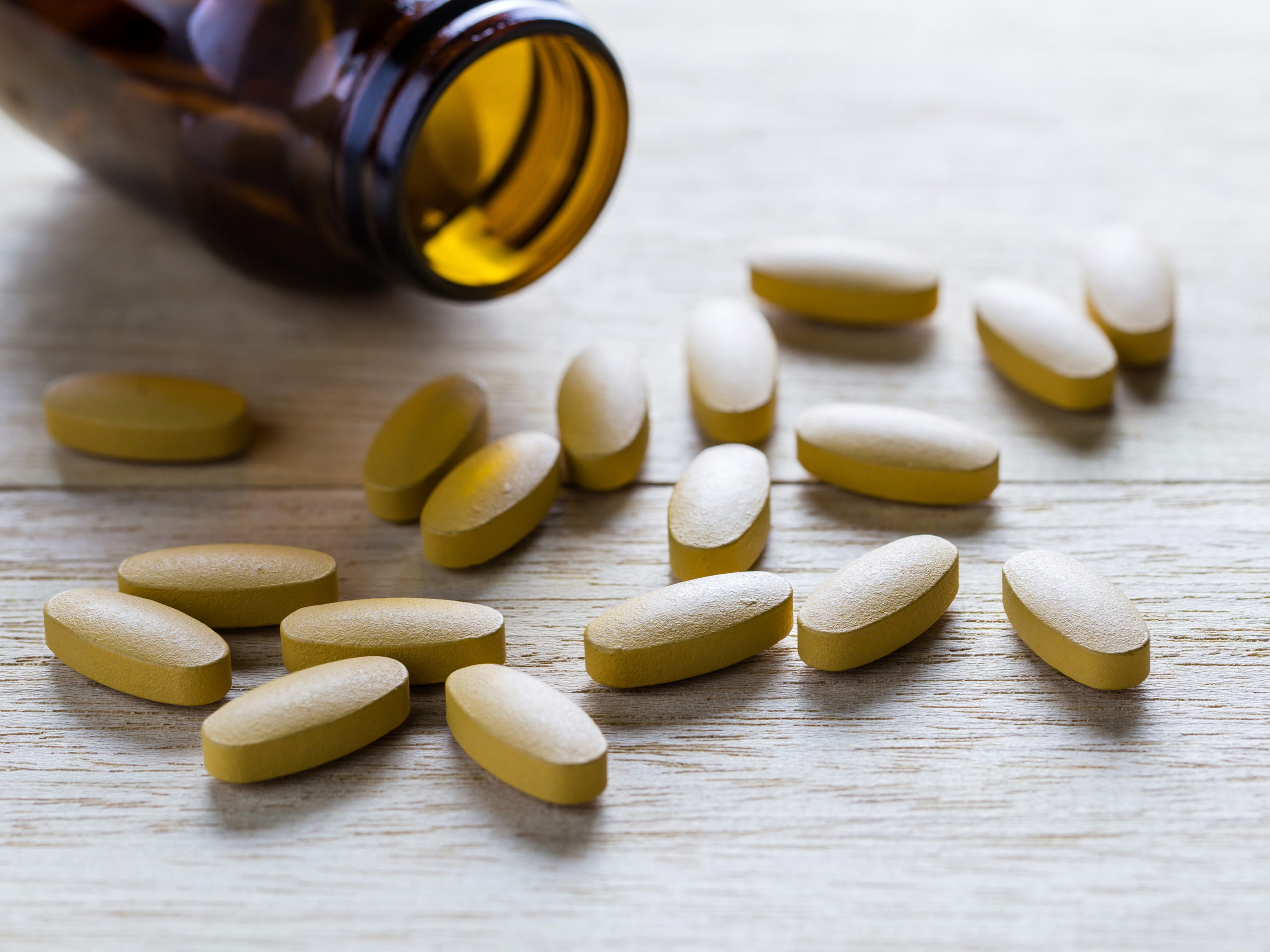Selenium is a trace element (that is, the organism only needs it in very small quantities, which is essential for the human body. It is present in trace amounts in food. Like most micronutrients, selenium plays a key role throughout the body. On the intracellular level, it has an antioxidant effect, because it allows the body to produce glutathione-peroxidase. This enzyme works together with vitamin E to protect cell membranes from oxidation caused by free radicals. In excess, the latter causes early aging and contributes to the appearance of certain types of cancers, cardiovascular diseases, and the formation of cataracts. Selenium also plays an essential role in the functioning of the immune system and the thyroid gland.
Various techniques used to measure the level of selenium in the body, including blood and hair analysis. However, in several epidemiological studies, the researchers have rather analyzed the nails of the subjects, as this method would be more reliable to evaluate the intake of selenium in the long-term.
Food sources of selenium
The selenium content of grains and vegetables depends directly on the content of this trace element in the soils where they are grown. Similarly, the content of animal-source foods varies according to the level of animal feed. The all-round champion in selenium is the Brazil nut, as only one nut provides the recommended daily intake.
In addition, Brazil nut contains a good amount of vitamin E, the antioxidant activity of which adds to that of selenium—recommended to consume, preferably, walnuts that have preserved their brown skin, to limit the risk of rancidity associated with their high lipid content. It is better to buy them in small quantities in a store where the rolling stock is fast stored in the freezer. Animal products and whole grains are good sources of selenium when produced in regions where the soil is rich in this mineral. Fish and seafood also contain good quantities of selenium.

Selenium deficiency
selenium deficiency occurs only in the following cases:
- Those whose main foods come from regions whose soils are selenium-poor.
- In persons who are on parenteral nutrition, and are not enriched with selenium for prolonged periods.
- In people with severe intestinal diseases such as Crohn’s disease or ulcerative colitis suspected, however, that a subclinical deficiency-that is, the signs of which are so minimal that the diagnosis difficult to ascertain-may be associated with various diseases: cardiovascular and inflammatory disorders, asthma, impaired immunity, cancer, cataracts, etc.
The exact selenium requirements of the elderly are not well-known and the current recommended nutritional intakes derived from those of young adults. However, suspected that low-selenium diet results in a risk of anemia in the elderly. A low blood level of selenium is also associated with loss of muscle strength, as well as a higher risk of disability and mortality. It is, therefore, essential that older people ensure that their diet is sufficiently high in selenium.
Selenium deficiency and viruses
The first cases of Severe Acute Respiratory Syndrome (SARS) occurred in China, a country where selenium deficiency is common. Researchers are exploring two hypotheses: Selenium deficiency is known to induce immune deficiency, but data indicate that it can also contribute to the mutation of viruses to new and more dangerous forms.
Selenium deficiency’s Uncertain Effectiveness on Cardiovascular Disorders
Epidemiological data show that selenium deficiency is associated with the incidence of certain cardiovascular disorders. In 2003, however, researchers concluded that the results of clinical trials were insufficient to draw conclusions about the effectiveness of supplementation in preventing such diseases. A retrospective analysis of data from the Nutritional Prevention of Cancer Study (NPC) published in 2006, Researchers examined the protective effects of taking 200 μg of selenium for almost eight years on 504 subjects without cardiovascular disease Start of the test. Selenium did not reduce the incidence of cardiovascular disease and had no effect on mortality from cardiovascular disease.

The Benefits of Selenium on Your Health
- Neuropsychiatric sphere: Physical exhaustion, nervous breakdown, desire to lie down (Manganum)
- Overworked intellectual, sexual with desire for stimulation: alcohol, tea, coffee (Nux Vomica)
- Effective for decreasing memory loss
- Genital sphere: disorders of the libido: insufficient erections, premature ejaculation (Kalium phosphoricum)
- Dermatological sphere: fall of hair, acne with oily skin (seborrhea), especially on the face (Natrum muriaticum). Dry skin otherwise.
Cancer of the bladder
In general, epidemiological data regarding a possible link between bladder cancer and selenium dietary intake or selenium levels in the body are contradictory. However, a recent case-control study indicates that selenium may have a particularly protective effect in women and smokers. In addition, some in vitro and animal data suggest that selenium useful in women at high risk for breast cancer.
Adjuvant treatment of cancer
Encouraging evidence has led to research on the use of selenium as an adjuvant to treat patients with various types of cancer.
Lymphedema caused by the treatment of cancer
Some preliminary studies indicate that selenium, taken under medical supervision, may be a useful adjuvant to reduce lymphedema. This swelling caused by an accumulation of lymph is a side effect of surgery or radiotherapy. Lymphedema, very disabling, especially after the treatment of breast cancer.
Ineffective Recurrence of skin cancer (non-melanoma)
The initial goal of the Nutritional Prevention of Cancer (NPC) study was to verify whether a supplementation of selenium (200 μg / day) could prevent the recurrence of skin cancer. This trial, involving 1,312 patients who had previously had skin carcinomas (non-melanoma), was not conclusive in this regard. Subsequent analysis of the data from this study confirms this fact. The authors even point out that the data tend towards an increase in this type of skin cancer, especially in subjects whose blood level of selenium was high at the beginning of the study.
These results contradict the findings of three case-control studies that found a link between high blood levels of selenium and reduced risk of skin cancer as well as in vitro and animal tests. One of the hypotheses advanced by the researchers is that many of the participants in the NPC Study were working on farms and were therefore exposed to pesticides containing arsenic: exposure to this substance associated with an increased risk of cancer Of the skin.
Selenium Benefits: Efficacy uncertain Asthma
A preliminary study indicated in 1993 that a supplement of selenium, combined with conventional medication, could contribute to the treatment of asthma. A larger trial published in 2007 did not confirm these results, and a case-control study did not reveal any association between the participants’ selenium blood levels and the risk of suffering from asthma.


Selenium Benefits: AIDS
A placebo-controlled study was conducted on 174 AIDS patients in Florida. In subjects taking 200 μg of selenium for nine months, the disease progressed less rapidly than in those taking a placebo. Selenium could thus be an affordable adjuvant treatment.

Selenium Benefits: Immunity
It is known that selenium is an antioxidant, and researchers are increasingly convinced that antioxidant activity is closely associated with the proper functioning of the immune system. However, very few clinical trials conducted on the effects of selenium supplementation on immunity. In a preliminary placebo-controlled trial in 2004, 50 μg of selenium, 100 μg, or placebo administered daily for 15 weeks to 22 healthy subjects with relatively low levels of selenium. Participants were then given an oral attenuated polio vaccine and measured their immune response.
The additional intake of selenium had a positive effect on various markers of the immune activity of the subjects treated. Still, the researchers estimate that a dosage higher than 100 μg would be necessary to obtain an optimal result.

Selenium Benefits: Contraindications
- There are rare cases of allergy to selenium.
- Selenium supplementation in people with goiter is not recommended.

